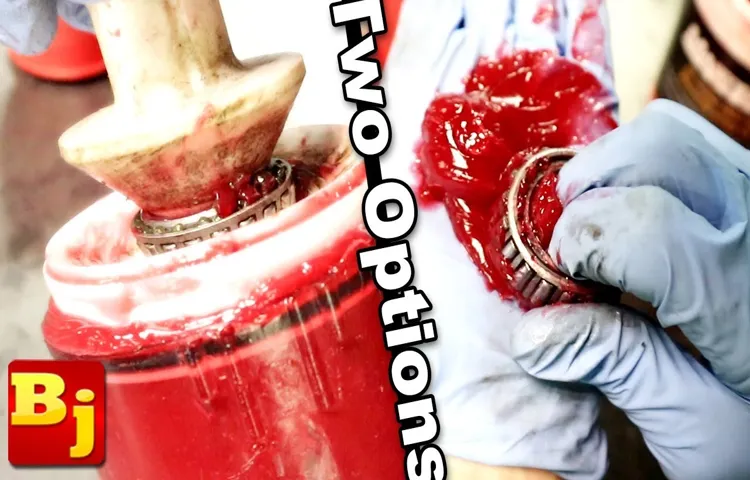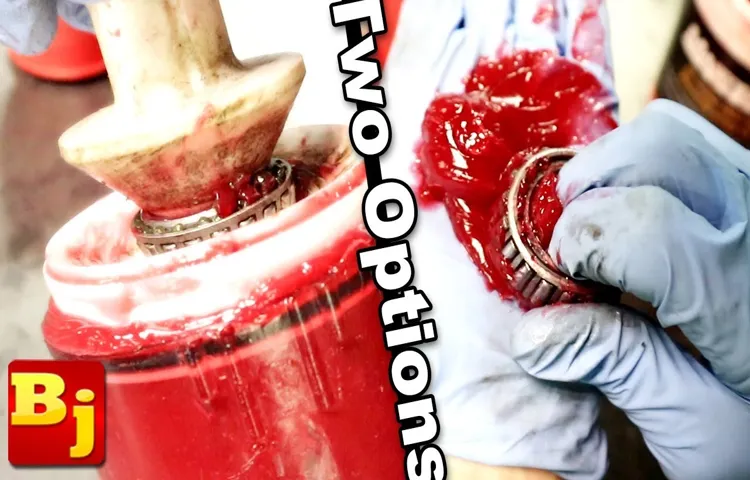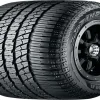If you’ve ever been in charge of maintenance for a machine that includes bearings, you probably know the importance of proper lubrication. But what happens if you overgrease a bearing? The consequences of excessive grease can range from decreased performance to serious damage. In this blog post, we’ll explore the effects of overgreasing a bearing, how to prevent it and what you can do to ensure optimal lubrication.
Imagine a hamburger. A little bit of sauce is great and helps to enhance the flavors, but too much sauce could cause it to become soggy and lose its taste. The same goes for bearings – too much grease can lead to overheating, decreased functionality, and premature failure.
Table of Contents
What is overgreasing?
Overgreasing refers to the practice of adding too much grease to a bearing. While it may seem like this would offer extra protection and lubrication, it can actually do more harm than good. What happens if you over grease a bearing is that the excess grease can cause pressure to build up within the bearing, leading to overheating and premature failure.
This is because the excess grease creates friction, which generates heat and slows down the bearing’s ability to rotate. Additionally, the extra grease can attract dirt and debris, which further exacerbates the problem by causing even more friction and wear on the bearing. Therefore, it’s crucial to use the correct amount of grease to reduce friction without overloading and damaging the bearing.
Regular maintenance and inspection can help prevent overgreasing and keep your equipment running smoothly.
Defining overgreasing in a bearing
Overgreasing in bearings is a critical issue that is caused by applying too much grease or lubrication to the bearings. Overgreasing can lead to many problems in the bearing system, such as increased friction, component wear, and overheating. Applying too much grease can cause the bearings to become clogged, which prevents proper lubrication from reaching all parts of the bearing.
This can result in increased friction and heat generation, leading to premature bearing failure. Overgreasing can also cause seals to fail, leading to contamination from outside sources. It is essential to avoid overgreasing by following the manufacturer’s recommended grease application procedure and regular maintenance schedules.
By doing so, you can extend the life of your bearings while saving time and money on costly repairs and replacements.

Effects of Overgreasing
Overgreasing a bearing can have serious negative effects on its performance and lifespan. When you add too much grease, the excess buildup can cause pressure to build up and lead to overheating, which can lead to premature wear and damage. In addition, overgreasing can cause the bearings to become more difficult to turn, leading to increased friction and wear.
Excess grease can also attract dirt and other contaminants, leading to even more damage and wear. All of these factors can cause the bearing to fail prematurely and potentially cause safety hazards. Therefore, it’s important to follow the manufacturer’s recommended lubrication guidelines to ensure proper performance and longevity of your bearings.
Increased friction and temperature
Overgreasing can be detrimental to your machinery, causing increased friction and temperature that can damage the components. When too much grease is applied, it can cause excess heat to build up, leading to premature wear and tear on the equipment. Additionally, the increased friction can cause damage to the bearings, causing them to seize up and potentially causing a breakdown.
It’s important to follow the manufacturer’s recommendations for the correct amount of grease to use to prevent these negative effects. By doing so, you can help ensure the longevity and efficiency of your machinery. Remember, too much of a good thing isn’t always better, especially when it comes to grease!
Damage to seal and surroundings
Overgreasing can have damaging effects on seals and their surroundings. While it may seem like adding extra grease can only be beneficial, the truth is that overgreasing can cause a buildup of excess grease that can lead to contamination, corrosion, and even leaks. This buildup can also cause damage to the seal, making it less effective and leading to premature failure.
Additionally, the excessive grease can attract dirt and debris, further contributing to seal damage and failure. It’s important to use caution and avoid overgreasing, as doing so can have costly and dangerous consequences. Instead, follow manufacturer recommendations for proper lubrication, and regularly inspect seals and surroundings for signs of damage or wear.
By practicing proper maintenance, you can ensure the longevity and safety of your equipment.
Wastage of grease and resources
Overgreasing can result in wastage of grease and resources, causing negative effects on the environment and your finances. When there is too much grease applied to moving parts, it can lead to excess lubrication, which ultimately drips onto the ground, creating an environmental hazard. Additionally, excessive grease usage can lead to equipment failure, as the excess grease can cause parts to stick or become clogged.
This can result in costly repairs and downtime. Overgreasing also leads to a waste of resources, as it requires more grease to maintain equipment, leading to higher costs and producing more waste. Therefore, it is essential to find the right balance when it comes to lubricating your equipment, to ensure that you are not wasting grease and resources, and to avoid costly repairs and environmental damage.
Preventing Overgreasing
Overgreasing a bearing can lead to a host of problems, including premature wear and tear, overheating, and failure. When grease is over-applied to a bearing, it can create excessive pressure, which can cause the bearings to seize up or become damaged. Overgreased bearings can also experience increased friction and drag, leading to poor performance and reduced lifespan.
To prevent overgreasing, it’s important to follow the manufacturer’s recommended greasing schedule and use the appropriate type and amount of grease. Additionally, regular maintenance and inspections can help ensure that bearings are well-lubricated and functioning properly. By taking proactive steps to prevent overgreasing, you can help keep your bearings running smoothly and avoid costly repairs down the road.
Following manufacturer’s recommendations
Preventing Overgreasing Following the recommendations of the manufacturer is essential when it comes to maintaining your equipment. Overgreasing, for instance, is one of the many problems that can result from not adhering to the manufacturer’s guidelines. Overgreasing occurs when you add more grease than the equipment needs, which can cause the bearings to fail prematurely.
It is important to note that overgreasing does not only damage the equipment but also wastes resources and may increase your operating costs. One way to prevent overgreasing is to use a calibrated grease gun. This tool ensures that you apply the right amount of grease to your equipment, and it also prevents contamination by keeping your grease clean.
In addition, consider using a grease sensor to detect when there is excessive grease in your equipment. Ultimately, reducing overgreasing will help you save money and increase the lifespan of your equipment.
Using the correct type and amount of grease
Overgreasing is a common issue that can damage your machinery components and increase maintenance costs. To prevent overgreasing, it is crucial to use the correct type and amount of grease for your equipment. Using too much grease can lead to a buildup of pressure, which can damage seals and result in a loss of lubrication.
It is important to follow the manufacturer’s recommendations for the type of grease and the amount required. Overgreasing can also lead to environmental pollution, as excess grease can escape and contaminate nearby soil and water. To avoid this, make sure to properly dispose of any excess grease.
By taking the time to choose the right grease and apply it correctly, you can extend the life of your equipment and save on maintenance costs in the long run.
Regular maintenance and inspection
Regular maintenance and inspection of machinery is essential for its optimal performance and longevity. However, overgreasing can be a common problem that can cause serious damage to the equipment if not addressed. Overgreasing occurs when too much grease is applied to the bearings, causing it to seep into the electrical components or shaft seals, disrupting their proper functioning.
This could lead to a decrease in efficiency, increased energy consumption, and even equipment failure in extreme cases. To prevent overgreasing, technicians need to closely monitor the amount of grease being used and ensure that it’s applied only when necessary. They should also use high-quality products that are designed to withstand high-pressure and high-temperature applications.
Regular inspections will also help detect any signs of overgreasing, allowing technicians to take corrective measures immediately. By taking preventative measures, companies can save a lot of money in maintenance and repair costs in the long run and ensure their machinery operates at optimal levels.
Conclusion
Over-greasing a bearing is like putting too much icing on a cake. At first, it might seem like a good idea, but eventually, it will create a sticky, gloopy mess that will lead to a disastrous outcome. The excess grease can cause high temperatures, increased friction, and ultimately, premature failure of the bearing.
So, it’s always best to follow the manufacturer’s instructions and grease the bearing just the right amount. Remember, a little grease goes a long way in keeping your bearings running smoothly!”
FAQs
What is the role of grease in a bearing?
Grease acts as a lubricant, reducing friction and wear between the bearing components.
Can over-greasing a bearing cause damage?
Yes, over-greasing can cause the bearing to fail prematurely as excess grease can cause pressure buildup within the bearing and interfere with its operation.
What are the signs of over-greasing a bearing?
Common signs include leakage of grease from the bearing, higher than normal operating temperatures, and noisy or rough operation.
How much grease should be applied to a bearing?
The amount of grease should be based on the manufacturer’s recommendations and may vary depending on the bearing type and application.
What is the best way to prevent over-greasing a bearing?
Regular maintenance and adhering to the manufacturer’s recommended lubrication schedule can help prevent over-greasing. Using automatic lubrication systems can also help ensure precise control of grease application.
Can under-greasing a bearing be as damaging as over-greasing?
Yes, under-greasing can cause the bearing to fail prematurely as lack of proper lubrication can result in increased friction, wear, and heat generation.
What should be done if a bearing has been over-greased?
The excess grease should be removed, and the bearing should be inspected for any damage. Further action will depend on the extent of the damage and may require bearing replacement or repair.



